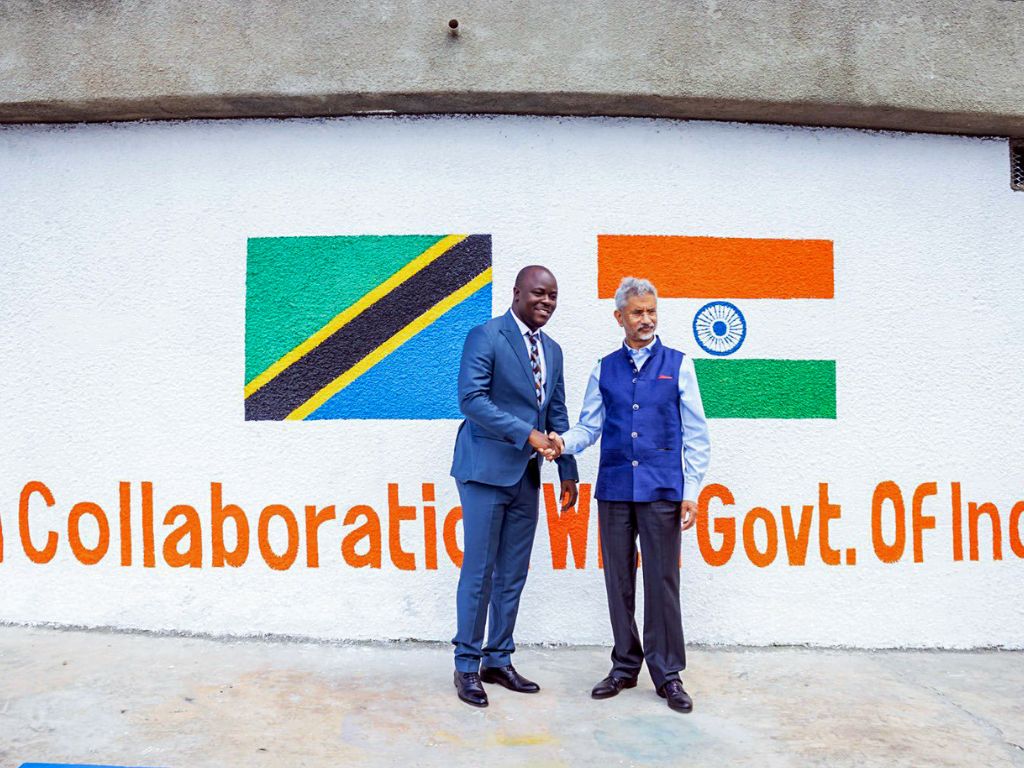- Sunday, April 06, 2025
Jaishankar acknowledged the significant role played by the Indian community in strengthening the bilateral relationship between India and Tanzania.

By: Shubham Ghosh
IN a veiled criticism directed at China, India’s external affairs minister Subrahmanyam Jaishankar on Friday (7) said that India’s engagement with the resource-rich African continent is not driven by extractive economic motives. During a visit to Tanzania, he addressed the Indian community in Dar-es-Salaam, highlighting the importance of the India-Tanzania partnership and India’s deep ties with East Africa.
Jaishankar reached Zanzibar on Tuesday (4) on a two-day visit and left for mainland Tanzania on Thursday (6).
Jaishankar pays tribute to Indian soldiers at Tanzania war memorial
“We are not here as an extractive economy. We are not here in the manner in which a lot of other countries are there for very narrow economic objectives. For us, this is a broader, deeper partnership,” Jaishankar said, in an apparent reference to the northern neighbour’s forays, including those of its military, into Africa.
China established its first overseas military support base in Djibouti in Africa in 2015, as part of Beijing’s plan to project its military power beyond the Asia-Pacific.
Jaishankar acknowledged the significant role played by the Indian community in strengthening the bilateral relationship between the two countries and highlighted India’s commitment to improving the lives of Tanzanians through various initiatives. He mentioned water projects that would benefit eight million people and spoke about Tanzania’s status as India’s largest African partner in training and capacity building.
India’s approach to Africa, according to Jaishankar, is focused on promoting trade, investment and collaboration to support Africa’s economic growth and development. He contrasted India’s approach with that of some other countries, alluding to China’s activities in Africa, including military deployments and resource exploitation.
Jaishankar stressed that India is viewed globally as a contributor and highlighted the role of Indian companies, technologies and capacities in improving people’s lives. He expressed his optimism about the growth of trade between India and Africa, attributing it to the expanding Indian economy, competitiveness of Indian businesses and technological advancements.
The External Affairs Minister emphasized the unique bridge that the Indian diaspora represents between India and Africa, underscoring its significance in fostering strong ties between the two regions. He also mentioned the extensive capacity building and exchange programs with Tanzania, including scholarships and defense training opportunities.
Jaishankar encouraged the Indian community in Tanzania to take pride in the positive impact of the India-Tanzania friendship on the lives of average Tanzanians, citing an example of a water project in Zanzibar that would provide drinking water to eight million people.
During his visit, Jaishankar participated in various events, including a reception aboard INS Trishul with Zanzibar president Hussein Ali Mwinyi and the signing of an agreement to establish an IIT Madras campus in Zanzibar. He also visited Stone Town in Zanzibar, highlighting the historical and cultural ties between Africa and India.
(With agency inputs)